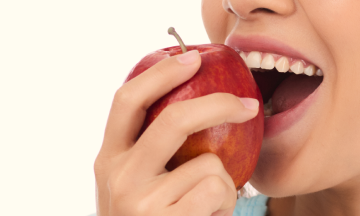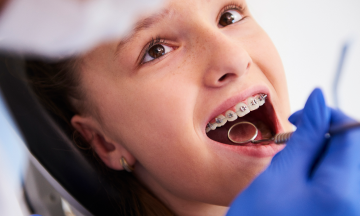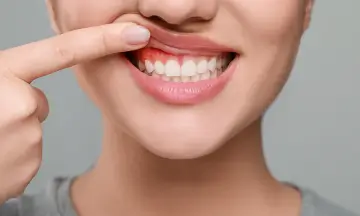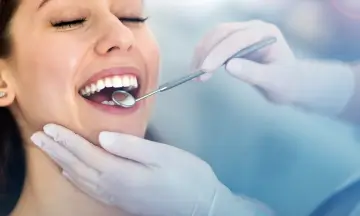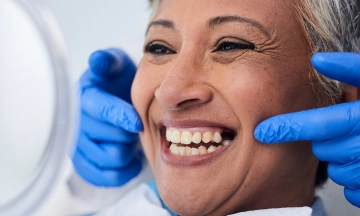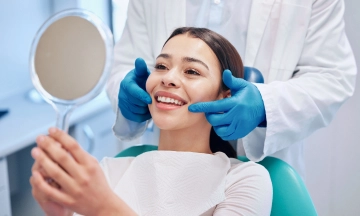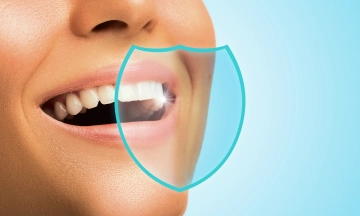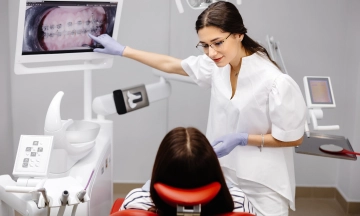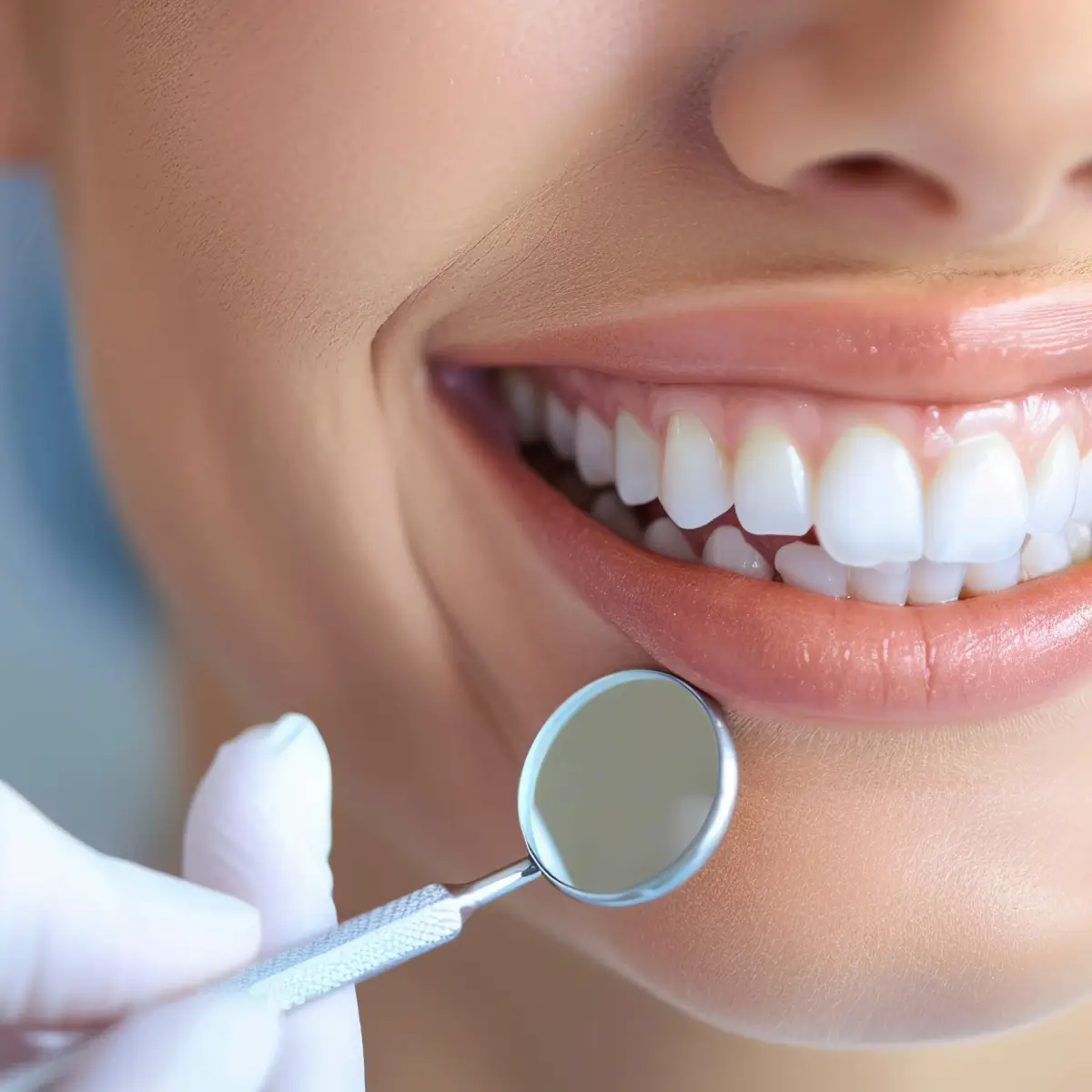
Your smile says a lot about you. In fact, it’s often one of the first things people notice—and keeping it healthy does more than just enhance your appearance. Strong teeth and healthy gums are key to chewing food properly, speaking clearly, and staying free of infections that can affect your overall health.
The best part? Good oral care doesn’t have to be expensive or time-consuming. With a few simple habits and a commitment to good dental hygiene, you can take excellent care of your teeth and gums right at home.
Below are 7 practical tips for healthy teeth and gums, and how teeth cleaning at home plays a major role in keeping your smile strong.
1. Brush the Right Way—And Do It Twice a Day
Yes, brushing twice daily is important, but how you brush matters just as much. Brushing too hard or rushing through the process can wear away your enamel and miss the areas where bacteria hide.
Brushing tips:
- Use a soft-bristled toothbrush.
- Hold it at a 45-degree angle to your gum line.
- Move in small circles, not back and forth.
- Spend at least two minutes brushing each time.
Following this routine forms the foundation of good dental hygiene, helping you remove plaque and food buildup effectively.
2. Don’t Skip Flossing
Flossing might seem tedious, but it’s one of the most important parts of your daily routine. It clears out plaque and leftover food particles from between your teeth, places your toothbrush can’t reach.
Simple flossing tips:
- Choose waxed floss or floss picks if you find regular floss tricky.
- Be gentle to avoid hurting your gums.
- Curve the floss around each tooth for a thorough clean.
When it comes to hygiene teeth cleaning, and flossing every day is a must.
3. Use a Mouthwash That Fights Bacteria
A good mouthwash does more than freshen your breath—it can help reduce bacteria, lower plaque buildup, and even strengthen enamel.
How to use mouthwash effectively:
- Swish it around your mouth after meals or at bedtime.
- Choose a brand with antibacterial and fluoride properties.
- Make sure it’s alcohol-free to avoid dryness.
Adding mouthwash to your routine enhances your overall dental hygiene and supports gum health.
4. Eat Foods That Are Good for Your Teeth
Believe it or not, what you eat has a big effect on your dental health. Sugary and acidic foods feed bacteria that cause cavities, while crunchy, fiber-rich fruits and vegetables help clean your teeth naturally.
Foods to choose:
- Apples, carrots, and celery (they gently clean as you chew)
- Cheese and yogurt (great sources of calcium)
- Green tea (reduces inflammation)
- Almonds and sunflower seeds (to support enamel)
Your plate can be just as important as your toothbrush when it comes to teeth cleaning at home.
5. Clean Your Tongue Too
It’s easy to forget, but your tongue can collect bacteria and contribute to bad breath and plaque. Cleaning it should be part of your routine.
Here’s how:
- Use a tongue scraper or just brush your tongue gently with your toothbrush.
- Always clean from the back toward the front.
- Do this once a day—preferably in the morning.
This small habit adds a powerful boost to your dental hygiene and helps keep your breath fresh.
6. Replace Your Toothbrush on Time
Over time, toothbrush bristles lose their shape and cleaning power. Worse, they can become a breeding ground for bacteria, especially if you’ve been sick.
When to replace:
- Every 3 to 4 months
- After a cold or flu
- Sooner if the bristles are visibly frayed
A fresh toothbrush ensures more effective and gentle hygiene teeth cleaning every time.
7. Visit Your Dentist Twice a Year
Even with the best home care, professional dental check-ups are essential. Dentists can detect early signs of decay, gum problems, or other oral issues that might not show symptoms right away.
Why you shouldn’t skip visits:
- Professional cleanings remove hardened plaque (tartar).
- Dentists screen for cavities, gum disease, and even oral cancer.
- You get personalized advice for improving your home care routine.
These visits are a cornerstone of good dental hygiene and long-term oral health.
Final Thoughts: Your Smile Deserves Consistency
Taking care of your teeth and gums doesn’t take hours—it just takes consistency. From brushing and flossing to eating smarter and visiting your dentist, these tips for healthy teeth and gums will help you keep your smile strong for life.
Start by improving your teeth cleaning at home—and remember, even small habits can make a big impact. A healthy mouth is a reflection of a healthy you.
FAQs
1. What’s the best way to clean your teeth at home?
Use a soft-bristled brush and fluoride toothpaste twice a day. Add flossing, a gentle tongue cleaning, and an antibacterial mouthwash to complete your teeth cleaning at home routine.
2. How can I improve my dental hygiene quickly?
Start small. Brush for two full minutes, floss before bed, cut back on sugary snacks, and stay hydrated. These easy steps can boost your dental hygiene in just a few days.
3. Is flossing really that important if I brush well?
Yes! Brushing only cleans the outer surfaces. Flossing is key for removing food and plaque between teeth—a crucial part of hygiene teeth cleaning.
4. How often should I go to the dentist?
It’s best to go every six months. Regular check-ups help maintain good dental hygiene and catch issues before they become serious.
5. Can mouthwash replace brushing or flossing?
No. Mouthwash is helpful but it doesn’t scrub the surfaces of your teeth. Think of it as an added layer in your dental hygiene routine—not a substitute.
6. Does diet really affect dental health?
Absolutely. Sugary and acidic foods can weaken your enamel, while calcium-rich and fibrous foods protect and clean your teeth. Your diet plays a major role in maintaining good dental hygiene.






